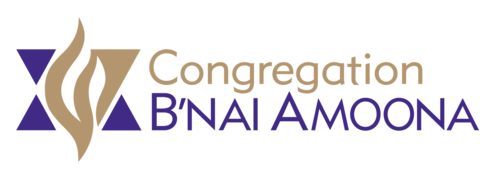Shalom friends!
The first verse of this week’s Parashah of Bamidbar, the opening section of the 4th Book of our Torah, reads as follow, “On the first day of the second month, in the second year following the Exodus from the Land of Egypt, the LORD spoke to Moses in the wilderness of Sinai, in the Tent of Meeting, saying…”
Not surprisingly, the ancient Rabbis hone-in on the fact that the Torah takes great pains, spills seemingly unnecessary extra ink, to share the specific geographic location of this section of our Holy Writ. So, why is it necessary for the Torah to share that the events we are about to encounter, in Sefer Bamidbar took place in Midbar Sinai, the Sinaitic desert?
Let me share three approaches which I find to be especially instructive for contemporary seekers:
- (I) The Midrash Rabbah relates: “Anyone who does not make themselves ownerless like the desert cannot acquire the deepest wisdom and the truest meanings of Torah. That is why it specifies, “…the desert of Sinai.” (Bamidbar Rabbah section 1:7)
Access to the truest and deepest teachings of our tradition requires a negation – or at least a tempering – of our egos. As the old saying goes: “There is no room for Divinity in a person filled with themselves.” Though God is everywhere, we need to make space within ourselves for God’s manifest presence to reside. The Midbar, the desert, is barren, ownerless and empty. Thus it serves as a profound metaphor for the internal openness we should quest to carve out for the Shechinah (the indwelling aspect of God).
- (II) The Rabbinic Midrashic collection to Shir Hashirim, Song of Songs, shares another idea: “The Torah came from the desert, the Tabernacle from the desert, the Sanhedrin from the desert, the Priesthood from the desert, the service of the Levites from the desert, royalty from the desert, as it says ‘You shall be to me a kingdom of Priests’, and all the excellent gifts that God bestowed on Israel came from the desert.” (Shir Hashirim Rabbah section 3:1)
We are without question a desert people. So many of our most influential leaders enjoyed profound, life altering and formative experiences in the wilderness. The Torah reminds us in this week’s Parashah that we need to recreate such moments, not necessarily physically, but surely psycho-spiritually.
- (III) “The Torah was given in the public domain, in a place belonging to no one, because if it have been given in the land of Israel, the Jews would have said to the other nations of the world, ‘You have no portion in it’. Therefore, the Torah was given in the desert, and any person who wants to receive it may come and receive it”. (Mechilta DeRabbi Yishmael, Parshat Yitro, Parsha Aleph)
Our Torah is not parochial or insular. Its wisdom is not the exclusive purview of any one nation or people. It’s an “Etz Chayim, a tree of life”, to all those who take hold of her with dedication and earnestness. It, therefore, is revealed and expounded upon in a “no-man’s-land” – an unowned, uninhabited, and even slightly undesirable locale so it becomes not the sole property of any one group, but rather “open source” - free, available and accessible to all.
As we prepare to, once again, read Parashat Bamidbar, let us endeavor to recall where Torah was first gifted to us, operationalized, and lived out - in the desert. And may this wilderness image and concisness inspire us, all of us, to cling to her broad, universal and global insights and wisdom.
With blessings for a health and inspiration filled Shabbat,
Rabbi Carnie Shalom Rose,
RavRoseBA@bnaiamoona.com
314-578-4115





























